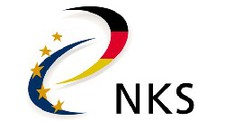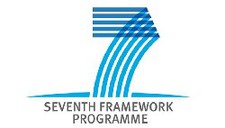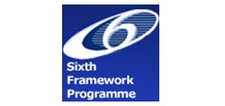-
Topics
subnavigation
Topics
Electromagnetic fields
- What are electromagnetic fields?
- Static and low-frequency fields
- Radiation protection relating to the expansion of the national grid
- High-frequency fields
- Radiation protection in mobile communication
Optical radiation
Ionising radiation
- What is ionising radiation?
- Radioactivity in the environment
- Applications in medicine
- Applications in daily life and in technology
- Effects
- What are the effects of radiation?
- Effects of selected radioactive materials
- Consequences of a radiation accident
- Cancer and leukaemia
- Genetic radiation effects
- Individual radiosensitivity
- Epidemiology of radiation-induced diseases
- Ionising radiation: positive effects?
- Risk estimation and assessment
- Radiation protection
- Nuclear accident management
- Service offers
-
The BfS
subnavigation
The BfS
- About us
- Science and research
- Laws and regulations
- BfS Topics in the Bundestag
- Links
European Research Framework Programme
The procedure of awarding research funds out of the EU budget is clearly defined in terms of content and time, this procedure being referred to as Research Framework Programme (RFP). All measures of the Community in the field of Research and Technological Development (RTD) are integrated in this framework programme.
Since the first framework programme for research, technology and development was introduced in 1984, the European Union has played a leading role in the planning and implementation of multidisciplinary research and cooperation measures in Europe. Currently, Horizon 2020 is running - the Framework Programme for Research and Innovation. Horizon 2020 consolidates all the European Commission’s support programmes.
Horizon 2020
The current programme Horizon 2020 succeeds the 7th European Union Framework Programme (FRP). Horizon 2020 consolidates all the European Commission’s support programmes. At the website of Horizon 2020, you may find all basic information on the Framework Programme and contact details of information centres, such as the National Contact Points (NCP). The portal also informs about the structure, application and evaluation procedures or relevant events. The site is continuously updated.
Euratom Programme
The "Euratom Programme for Nuclear Research and Education (2014 to 2018)" supports measures related to nuclear research and education. It complements and supports the most important goals of Horizon 2020 – Excellent Science, Industrial Leadership and Societal Challenges – by appropriate measures:
- Improvement of nuclear safety (Societal Challenges)
- Contributions to the development of long-term solutions in the area of disposal and to the development of partitioning and transmutation systems (Excellent Science, Societal Challenges)
- Development of expertise through education and mobility measures (Excellent Science)
- Advancement of radiation protection and medical applications (Excellent Science, Societal Challenges)
- Development of nuclear fusion as an energy source (Industrial Leadership, Societal Challenges)
- Establishing the basis for future nuclear fusion installations by developing material, technology and concepts (Industrial Leadership, Societal Challenges)
- Promoting innovations and strengthening the industry’s competitiveness (Industrial Leadership)
- Securing the availability and use of infrastructures that are of pan-European interest (Excellent Science)
Through the Euratom programme, the direct measures of the European Commission’s Joint Research Centre (JRC) are also supported.
Applying for research funds
Basic information on projects can be requested from the hotline:
Phone: +49 (0) 228 3821-2020
E-Mail: h2020@dlr.de
General information
General information on the new European Union (EU) Framework Programme for Research and Innovation is summarised in the Federal Ministry of Education and Research's (BMBF) brochure Horizont 2020 im Blick (in German only). Current calls are published on the European Union's Participant Portal.
The Participant Portal as a gateway to the Calls in Horizon 2020
In Horizon 2020, all aspects within the scope of preparing a proposal, signing an agreement and implementing a project are processed via the electronic Participant Portal. Essential information for an application, such as relevant documents or access to national contact points, is presented on the platform.
Project proposals, that is, applications for funding of research and innovation, are to be submitted as open calls only. An overview of all calls (as well as current calls) is published on the EU's Participant Portal.
EURATOM Work Programme
The Work Programmes are drafted by the Commission. They are implementation plans of the specific programmes and the thematic priorities, respectively, updated at least once a year. In detail, they include:
- the objectives of the Programme,
- the research topics that are to be supported,
- the type of their support,
- the budgetary limits,
- the evaluation criteria,
- the likely publication dates of the calls for proposals.
The current EURATOM Work Programme 2018 may be viewed or downloaded as a PDF file.
Horizon Europe
Preparations for the successor programme to "Horizon 2020", the current EU Framework Programme for Research and Innovation, are in full swing. The proposal of the European Commission for the 9th Framework Programme (FP9) named "Horizon Europe" is expected for July 2018.
Former Programmes
The Seventh Framework Programme
The "Seventh Framework Programme of the European Atomic Energy Community (Euratom)" ended on 31 December 2013. This article provides information on the programme since more than 20 Euratom projects will continue for some time.
The prior objective of the Research Framework Programme (from 2007 to 2013) was to strengthen the Community's competitive capacity and to support those research measures that are necessary due to the Community´s policy. The primary focus was thus the trans-national research and development forming the basis for an innovative European economy and at the same time being of immediate benefit to the citizen.
The "Seventh Framework Programme of the European Atomic Energy Community (Euratom) for nuclear research and training activities" was the radiation protection relevant programme. It comprised the themes of fusion energy research as well as nuclear fission and radiation protection and the themes of the "Joint Research Centre (JRC)" and had the following objectives:
- Advancing scientific and engineering bases for nuclear fusion and building the ITER fusion experiment,
- Creating the scientific-technical bases for the safe disposal of waste with long-lived radionuclides,
- Improving the safety level, resource efficiency and competitive capacity of nuclear energy,
- Ensuring a reliable system for the protection of man and the environment from the effects of ionising radiation.
Radiation protection in detail
The safe use of ionising radiation and radioactive substances in medicine and industry is based on a solid radiation protection policy and its efficient implementation. Research initiatives in the field of radiation protection are of great importance in order to maintain or, respectively, improve the already achieved high protection level. The objective of this research is to support the EU radiation protection policy and its efficient implementation through EU-wide standardised statutory provisions and their set-up in practice as well as a rapid and efficient course of action in case of acute, non-predictable requirements, such as radiological incidents.
Main research is:
- Quantification of risks for low and protracted exposures,
- Medical uses of ionising radiation and radioactive substances
- Emergency management and rehabilitation
- Malevolent uses of radiation or radioactive material
PROJECTS in FP 7 / EURATOM
Current projects in FP 7 / EURATOM (CORDIS Website)
The Presentation of some projects in EURATOM FP7 has been published in Research and Training Projects by the European Commission.
The 6th framework programme
The emphasis of the Sixth Framework Programme (FP6) 2002 to 2006 was on high-quality research measures in the scope of which science and research in Europe can be focussed and integrated. Furthermore, trans-national cooperation was to be optimised.
Short presentations of the EURATOM research projects and training under the Sixth Framework Programme have been published by the European Commission under the title Euratom research projects and training activities.
State of 2018.06.26




